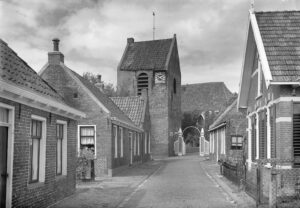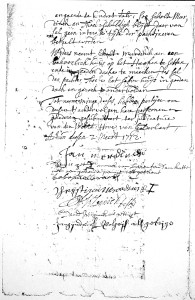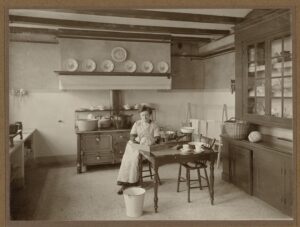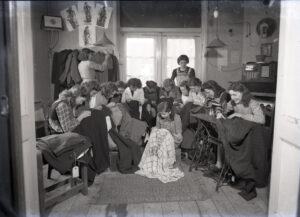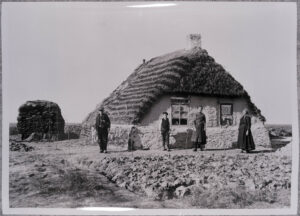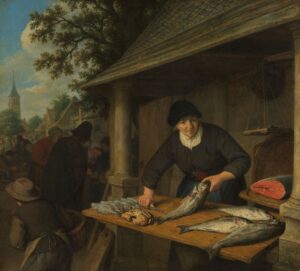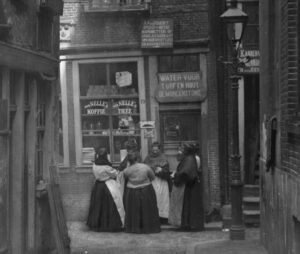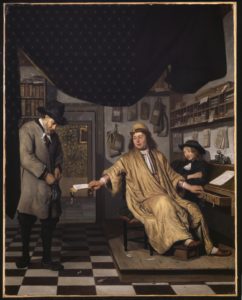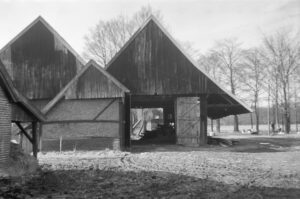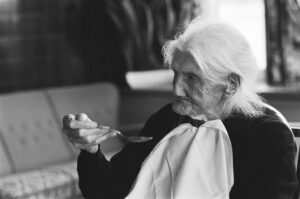Nederlands Hervormd means Dutch Reformed, a protestant religion. You may come across the term in population registers or church records. The Dutch Reformed church adopted that name in 1816. Before that, it was known as Nederduits Gereformeerd [Nederdutch Reformed]. There are many other protestant religions that split off from the main Dutch Reformed church, including Gereformeerd [Christian Reformed]. … [Read more...]
Dutch term – Huur
Huur is a noun meaning rent. The verb huren means to rent, and verhuren means to let out (huren is from the viewpoint of the renter, verhuren from the viewpoint of the owner). Many people rented houses and/or land. Historically, most people in the Netherlands were too poor to own their own houses, and rented them instead. The owners were often richer people in the town, noble families, churches, or (especially in earlier periods), monasteries and convents. Some rental contracts were made … [Read more...]
Dutch term – Keuken
The keuken is the kitchen. You may come across the term in estate inventories, where the items in the house are tallied by room. Kitchens originally had open fires, then hearths, and in the 19th and 20th century this gradually changed to stoves. Small houses where poor people lived did not typically have a separate kitchen. They would cook over the hearth fire or furnace in the living room. … [Read more...]
Dutch term – Naaien, naaister
Naaien means to sew. A naaister is a seamstress. In the past, professional naaisters were typically poor women, though women of all classes were taught the basics. Naaien could be done from home, and was an employment possible for women with young children. It is one of the few occupations open to women with children out of wedlock, who would rarely be welcome to work as servants in "respectable" households or stores. … [Read more...]
Dutch term – Plaggenhut
A plaggenhut is a sod cabin; a house built using layers of topsoil. These houses were used by poor people, especially in the peaty areas in the north-east of the Netherlands where there was no natural stone or clay. … [Read more...]
Dutch term – Visvrouw
A visvrouw [literally: fish woman] is a female fish seller. It was not uncommon for wives of fishermen to sell the fish at markets. … [Read more...]
Dutch term – Water-en-vuur-winkel
A water-en-vuur-winkel (literally: water and fire shop) was a shop where you could buy buckets of hot water and hot coals to get your own fire started. Water-en-vuur-winkels were mainly found in larger cities. … [Read more...]
Dutch term – Vruchtgebruik
Vruchtgebruik (literally: use of the fruits) is the Dutch term for usufruct, the right to use a property, usually for the remainder of one's life. You may encounter the term in notarial records, for example in wills that give someone the vruchtgebruik of a property that is then left to someone else after they die, or in a sale record where the vruchtgebruiker (person who has the right of vruchtgebruik) relinquishes their rights. You may also find the term in death duties files, which would … [Read more...]
Dutch term – Schuur
A schuur is a barn or a shed. Some of my ancestors lived at the Roerdink farm in the Netherlands from the 1400s to the 1600s. The farm still exists. The main building has been renewed but some of the outbuildings have not. They used tree ring dating on the barn a couple of years ago and it was from 1544 so it was built when my ancestors lived there. It is the oldest known barn in the Netherlands. Cultural Heritage Service (CC-BY-SA). … [Read more...]
Dutch term – Leeftijd
The leeftijd is the age. You may find a person's age mentioned in birth records (father, informant, witnesses), marriage records (bride and groom, witnesses), death records (deceased, informant, witnesses), census records, and also in some court or notarial records, especially when people testify about something. As you go back further in time, there will be fewer records that give a person's age. Keep in mind that illiterate people are less likely to know their own age. An age that ends in 0 … [Read more...]
